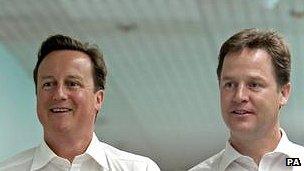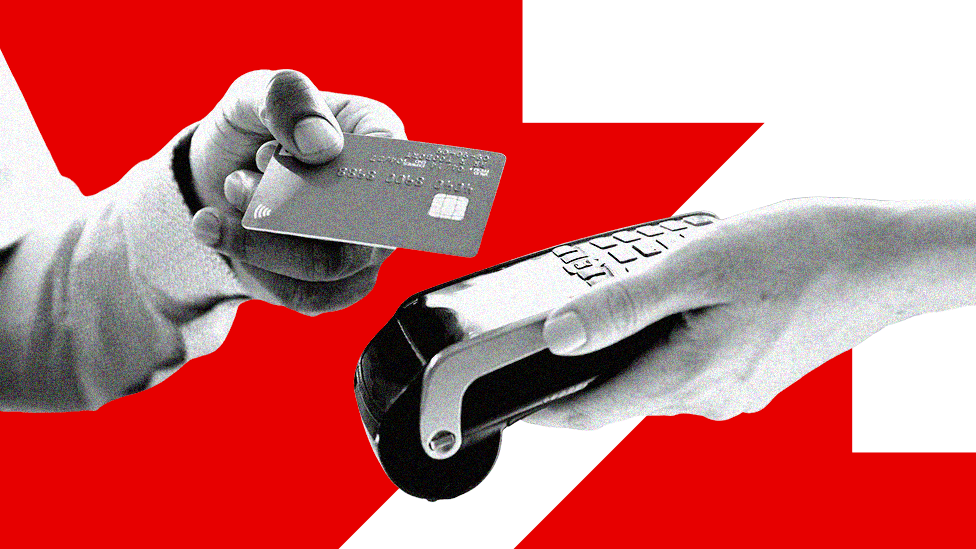End to recession gives hope to coalition partners
- Published
- comments

The figures will boost ministers as they seek to argue that the economy is on the right track
Forget for a moment the debate about margins of error, the impact of the Olympics, and the bounce back from the Jubilee bank holiday.
Ignore the talk of preliminary figures and how they compare with this financial quarter or that.
Turn down the sound on your telly so the cacophony from dissenting economists is dimmed. And put aside, too, the chancellor's cautious, mixed metaphors about the government laying down the foundations for a healing, rebalancing economy that's on the right track.
The truth, if you will forgive my own mixed metaphors, is that it is very difficult to claim with any certainty whether today's growth figures mark a turning of the tide or a false dawn for the economy.
But the political significance is undeniable:
1. The figures allow the Conservatives and Liberal Democrats to hope. It allows them to dare to believe that Plan A might just work, that somehow in two years time they may be able to go into the election saying the pain has been worth it. And political confidence, like economic confidence, is a prize worth having.
2. It allows the coalition parties to begin rehearsing their argument for the next election, namely their claim that the economy is on the right track and voters should not risk it all by backing Labour. That is not an argument any government can make convincingly when the economy is in recession.
3. It puts pressure on Labour to come up with a strategy that responds to this argument, namely how it will claim that they would manage the economy better when there may be some sustained growth by 2015. In other words, how will Labour offer greater hope when its message thus far has been one of gloom? Will warning the government against complacency and calling for a VAT cut be enough?
4. It could have been so much worse for the government. If there had been no growth despite the Olympics and so on, there might have been a crisis of confidence among Conservative and Lib Dem MPs who are looking closely at their majorities and turning their minds to the general election.
5. Perhaps most importantly, it gives the government the chance to try to break out of the awful run of bad news that has hung around its neck since the economy fell into recession and the Budget collapsed into omnishambles. After months of headlines about pasty taxes, plebgate, confusion over energy policy, West Coast mainline chaos, G4S Olympic security muddle, abandoned Lords' reforms and badger culls and so on, the government will hope it has a chance to change the narrative.
But, to misquote Mr Marvin Gaye, it is not clear that "statistical healing is good for me".
Those around George Osborne have for months been - perhaps a tad optimistically - arguing that once the economic figures turn around, then the political figures will shift too.
But what matters are not just economic figures, but how voters feel about the economy. Do they feel secure in their jobs? Do they feel confident they can find a job? Do they feel ready to risk an investment to grow their business? Above all, do they believe the government is competent?
And as we saw from Prime Minister's Questions this week, that is a running sore in the side of this administration into which Ed Miliband will happily pour much salt.
Just ask Sir John Major. He had several years of growth under his belt by 1997. And a fat lot of good it did him.
- Published25 October 2012


